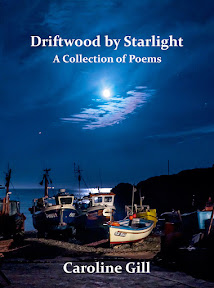This was the heading in The Times (16 January) linked to a column by the education correspondent, Nicola Woolcock, in the run-up to the announcement of the TS Eliot Prize. The link is here, although the online version has a less controversial heading!
- 12 out of the 17 on the shortlist of those with the Masters Degree in Creative Writing were women.
- 7 (of these?) attended UEA.
- 5 of the 17 (men and women) have been contenders in the Costa First Novel Award since 2005.
'The idea has taken root that writing can be taught as well or badly as acting, painting and dancing,' he concluded.
Do you agree? PLEASE CAST YOUR VOTE IN MY POLL (top right). It will run for a week.







4 comments:
I wonder if the preponderance of women benefitting from the degree course has anything to do with women's lower resistance to asking directions...? ;0)
I have voted, but need to return when it's a more voted-in vote before i can tell if my response is really the same as everyone's.
I have voted also, but sitting on the fence. Further research is needed, going on from what the _Times_ writer did -- looking at qq. such as what % of published work (not just prizewinning) is by CW grads, what % of CW grads go on to establish themselves as writers, and, more evaluatively, how good these people's work is. CW grad Louis Menand's article 'Show or tell?: should creative writing be taught?' (_New Yorker, 8 June 2009) is online at http://bit.ly/154U72 . It majors on the evaluative rather than the number-cruncherial, and ends w. this:
"I stopped writing poetry after I graduated, and I never published a poem—which places me with the majority of people who have taken a creative-writing class. But I’m sure that the experience of being caught up in this small and fragile enterprise, contemporary poetry, among other people who were caught up in it, too, affected choices I made in life long after I left college. I wouldn’t trade it for anything."
Thank you both very much for your thoughts here. I am continuing this theme in my next post...
its an interesting question. My issue with a lot of creative writing training is that there can be a tendency for graduates to come out sounding like clones of each other. I think a lot of people see teaching in creative writing as unnecessary as after all we all use language, whereas we don't all paint or make music...
Post a Comment